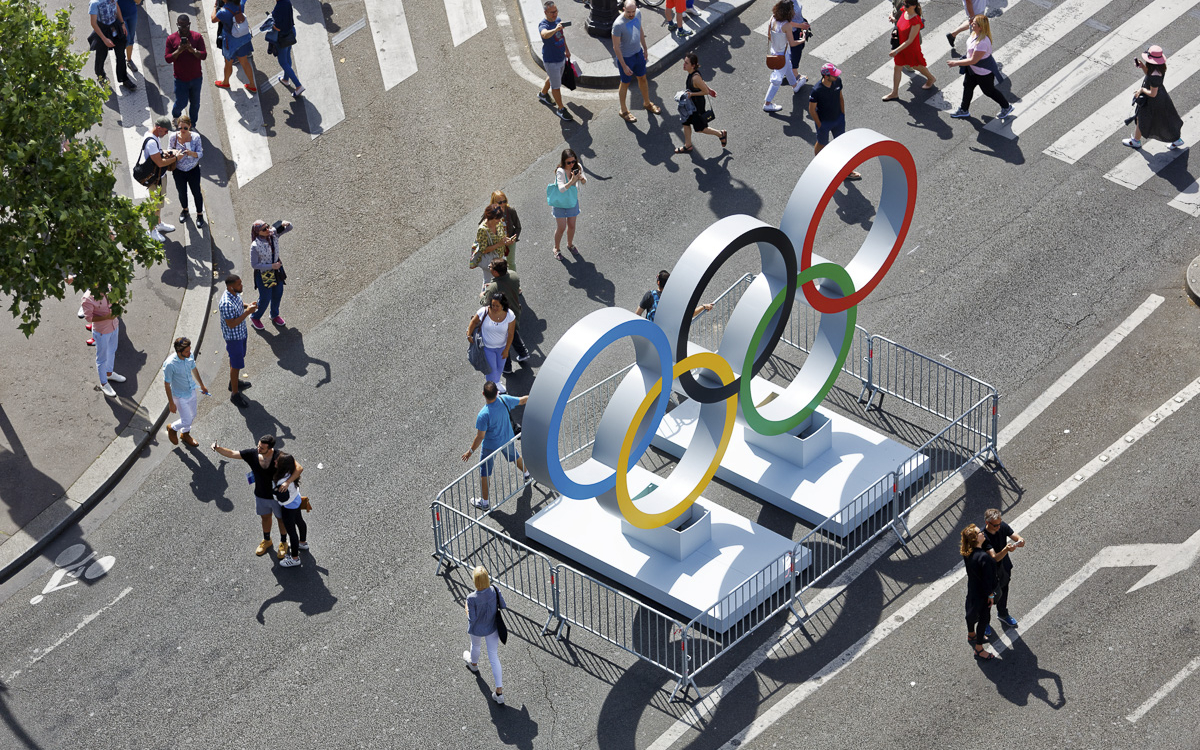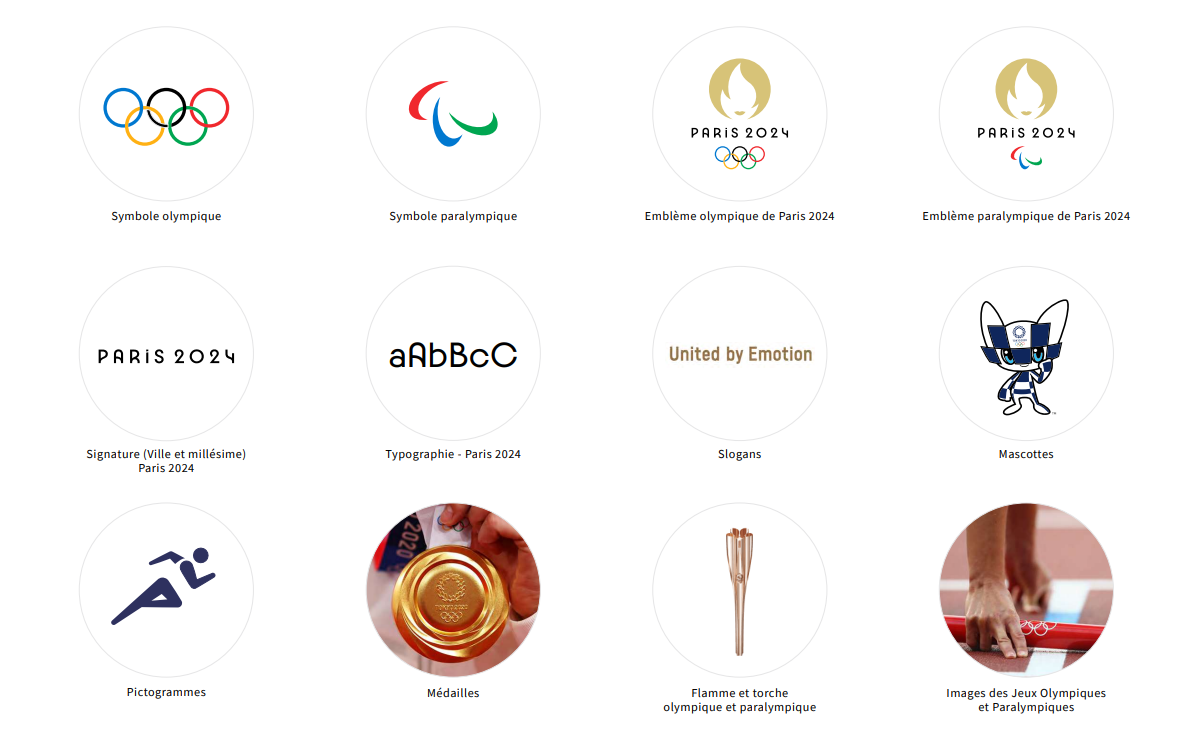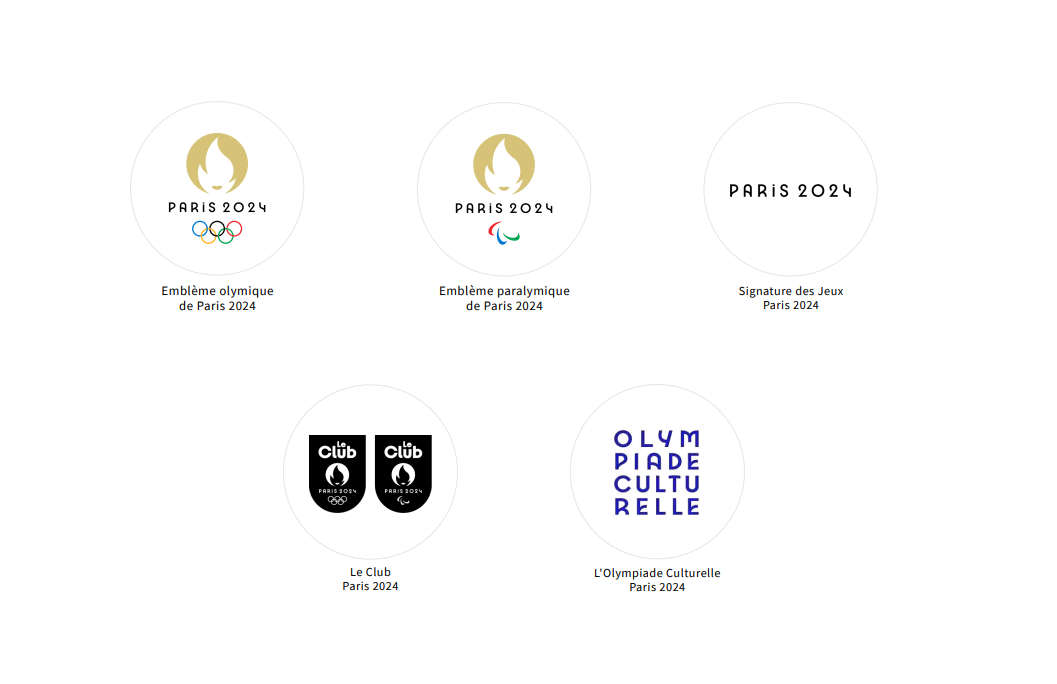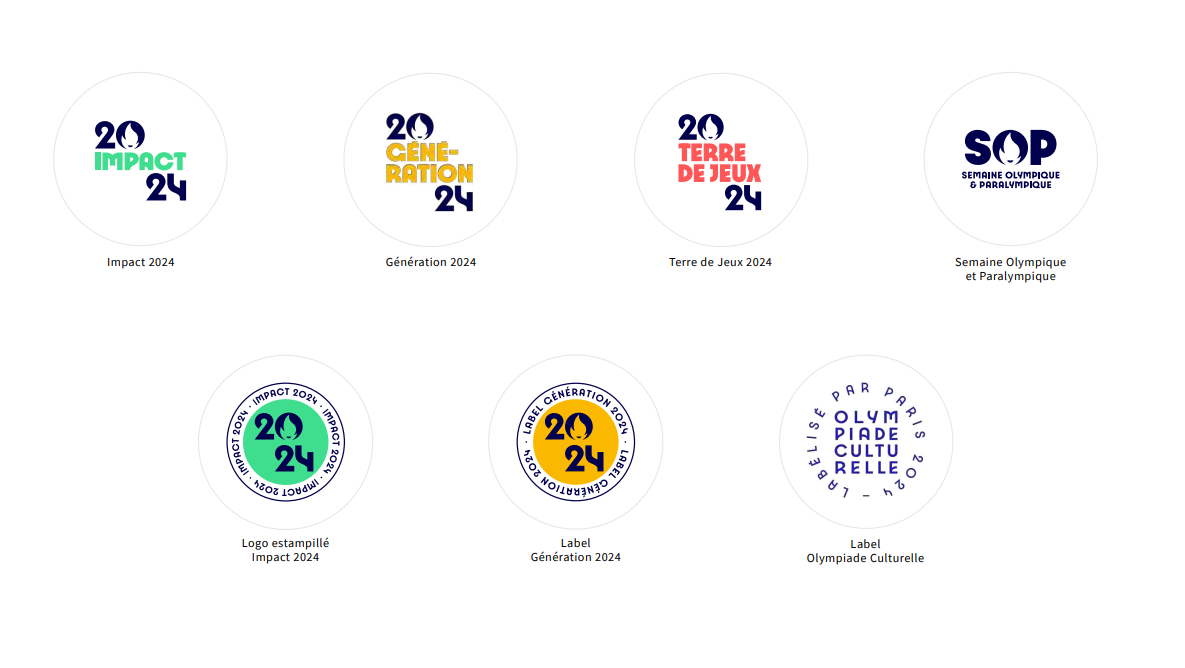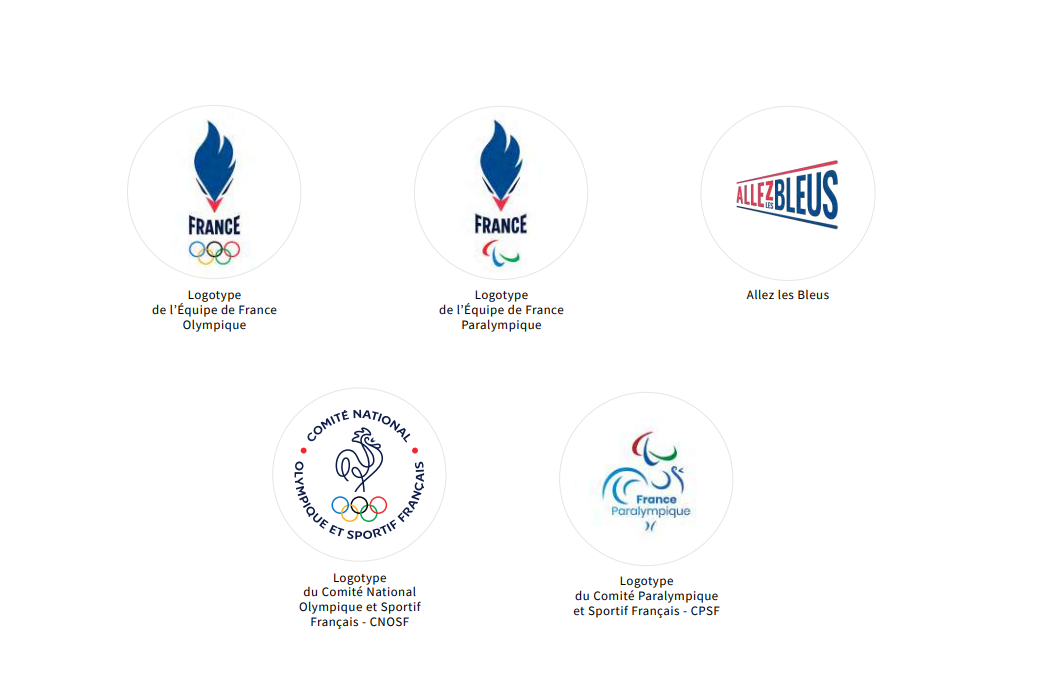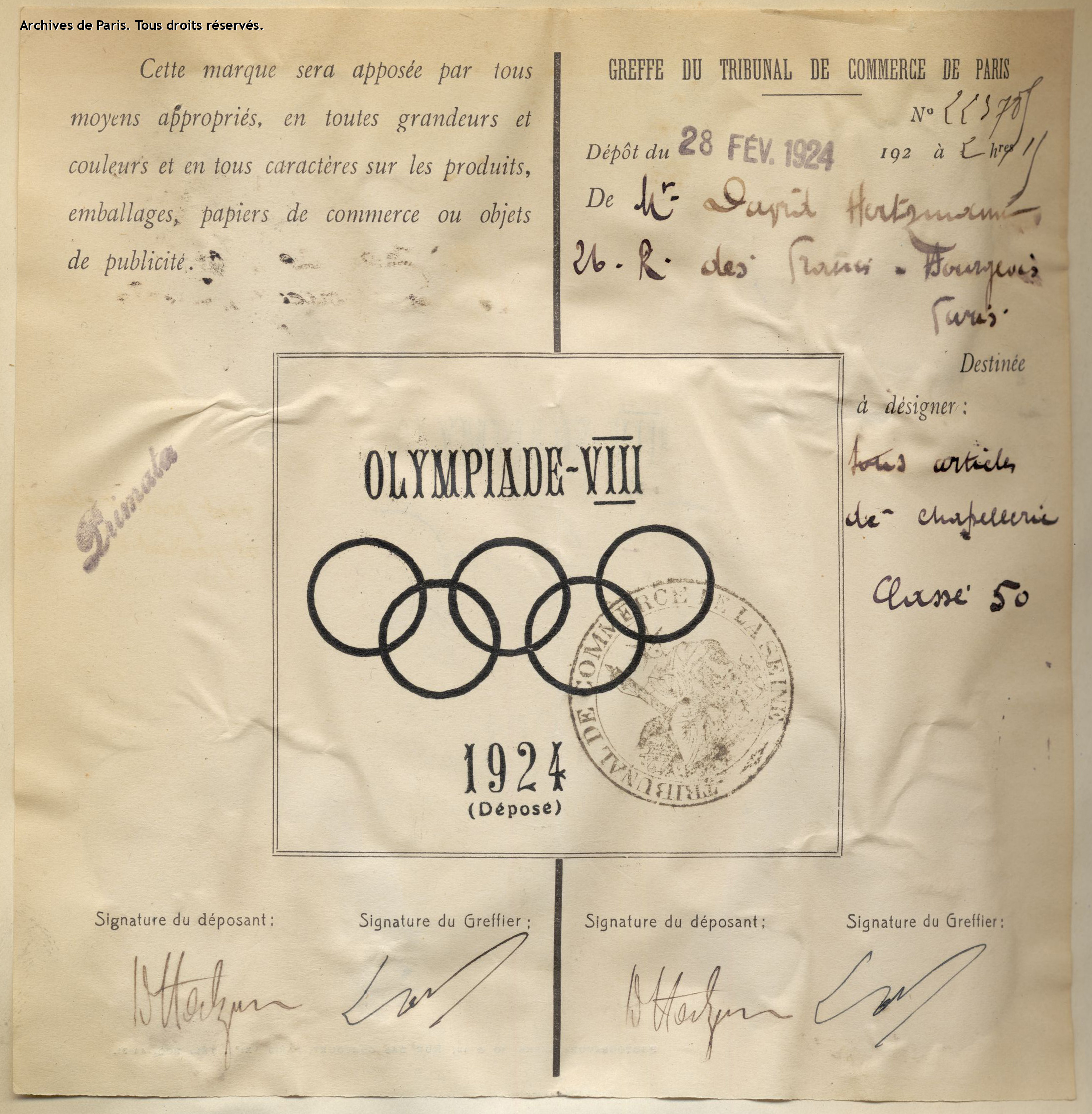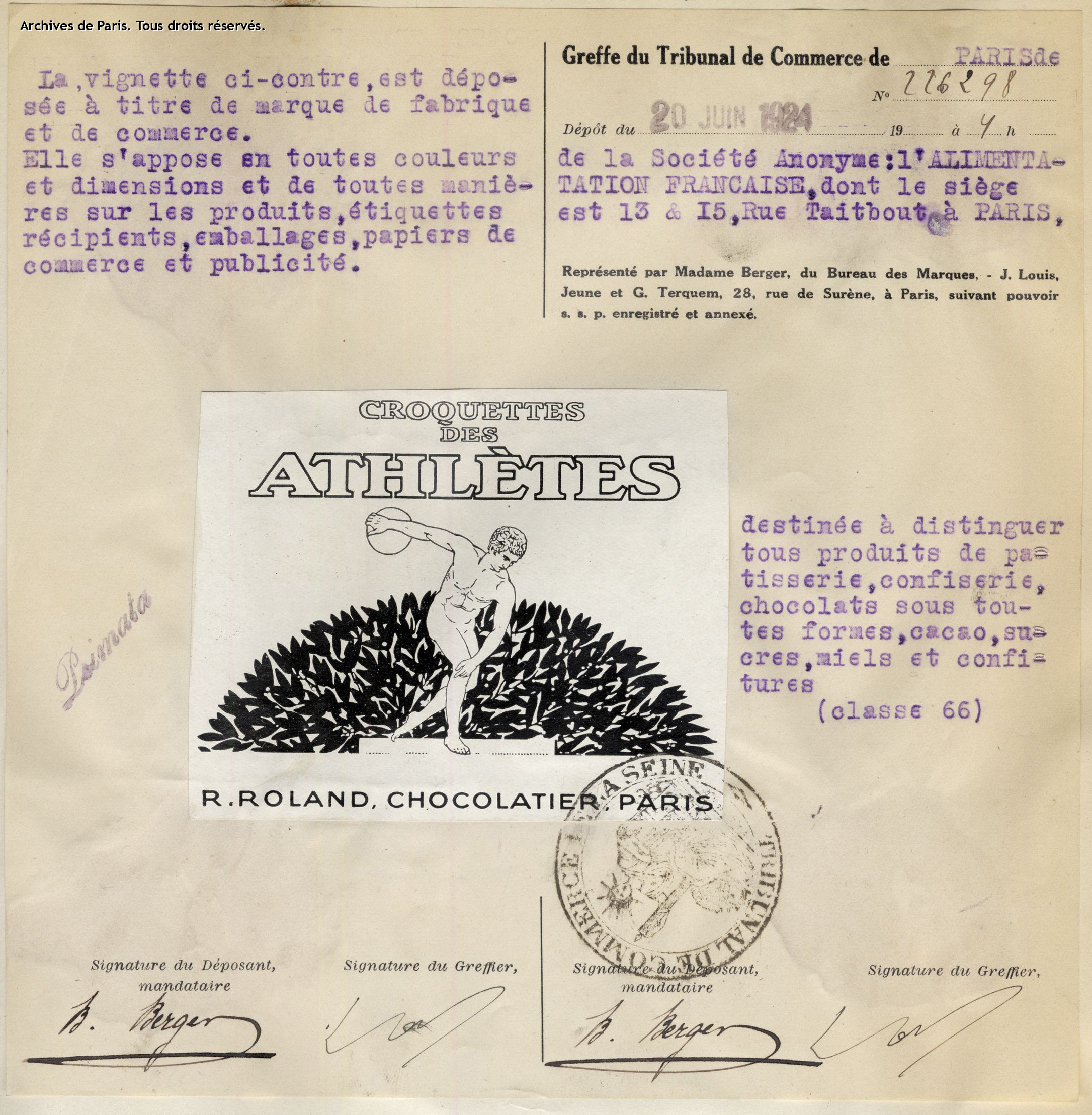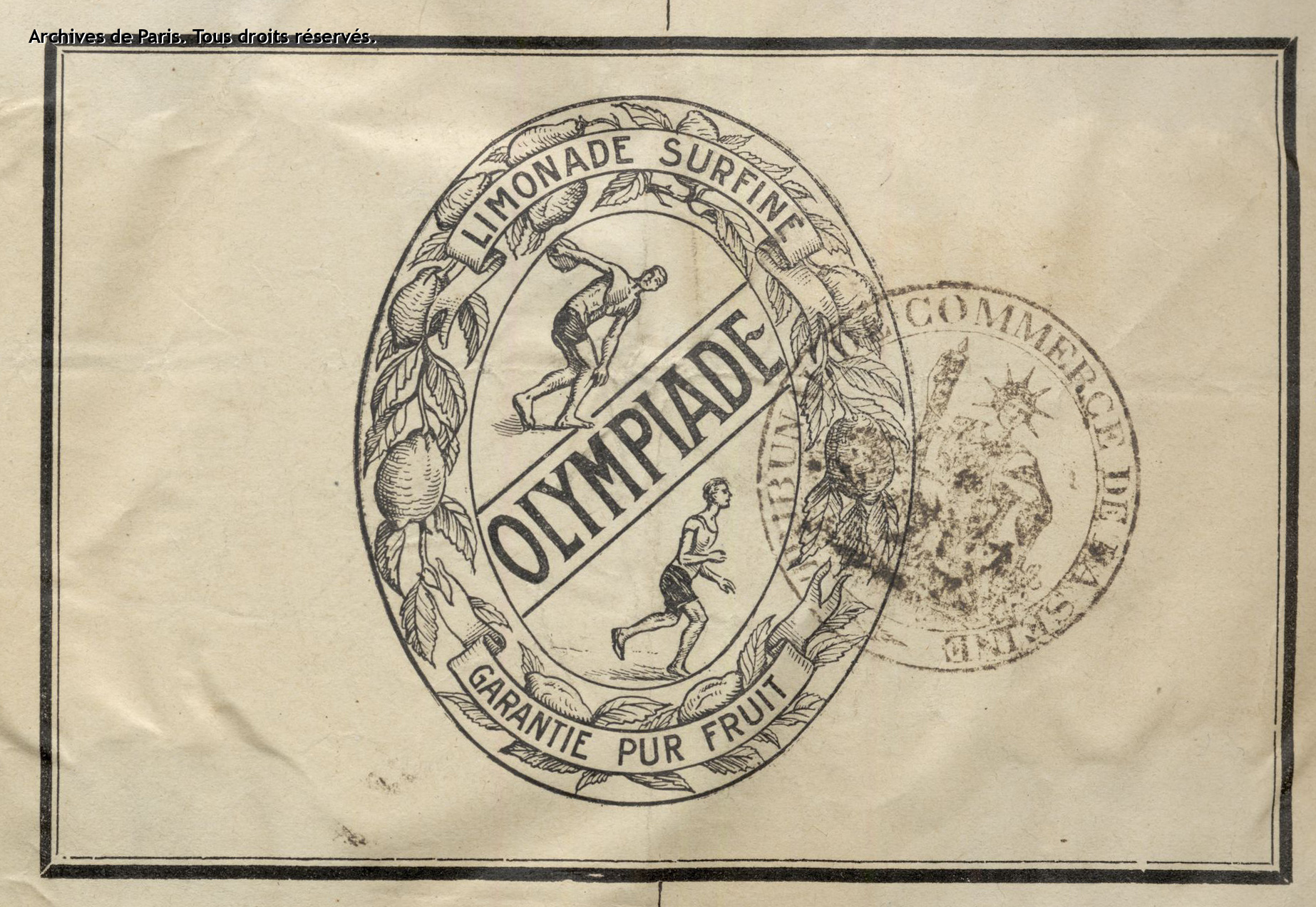Content
Cette page est aussi disponible en français
Charters, copyright, trademark laws, counterfeiting… The International Olympic Committee imposes a number of marketing constraints.
Olympic and Paralympic charters and properties
What are "Olympic properties" and "Paralympic properties"? Collectively or individually, this means the Olympic and Paralympic symbol, flag, motto, anthem, identifications, designations, emblems, flame and torches. This also includes any musical or audiovisual work, creation or object commissioned in connection with the Olympic and Paralympic Games by the International Olympic Committee (IOC), the International Paralympic Committee (IPC), the National Olympic Committees (NOCs), the National Paralympic Committees (NPCs) and/or the Organizing Committees for the Olympic and Paralympic Games (OCOGs).
All rights to the properties, as well as all related usage rights, are the exclusive property of the IOC and the IPC, including their use for profit-making, commercial or advertising purposes. It is possible to license all or part of these rights under the terms and conditions laid down by the IOC or IPC Executive Board.
Protecting property for the Paris 2024 Games
Paris 2024 would not be able to organize an event of this magnitude without the considerable contribution of its sponsors and those of the IOC and IPC, its media rights holders and other licensees, the host country and host cities.
Paris 2024 Games partners all provide essential organizational assistance. In exchange for this support, partners become owners of the rights to Olympic properties and are granted the exclusive right to use them for promotional and advertising purposes, thus benefiting from associated spin-offs.
These elements are protected by copyright, registered and/or well-known trademarks, designs and models and the laws governing them, in particular with regard to counterfeiting, free-riding and anti-competitive practices.
Therefore, if you are not an official Paris 2024 partner, you may not use the visual elements associated with the Olympic and Paralympic properties, the Paris 2024 brand, the Paris 2024 institutional brands and labels, or the French team brands.
Counterfeiting
Counterfeiting is defined as the exploitation of an intellectual property (artistic or literary creations, logos, products, patents, trademarks, etc. enabling consumers to identify the origin of a product or service) without the authorization of its owner. It is punishable under both civil and criminal law. In addition, a well-known trademark is protected even if it has not been registered.
Counterfeiting can be achieved by copying an existing creation, presenting it to the public or distributing it. Such acts may constitute an infringement of Paris 2024, the IOC and IPC rights. It is punishable by up to three years of imprisonment and a 500,000 euro fine.
Get all the news on disruptions and opportunities related to the Games with the Paris Infos Jeux 2024 newsletter.
Anti-competitive practices and free-riding
One form of free-riding implies placing oneself unduly in the wake of a major event, particularly a sporting event, allowing one (or a business) to take advantage of investments and efforts made by rights holders.
Penalties are defined according to the damages caused by this unfair competitive practice.
Examples of unauthorized uses:
-
Use of the Paris 2024 emblem on printed or digital media
-
Use of Olympic and/or Paralympic terms and the image of the torch
-
Use of terms and symbols evoking the Olympic and/or Paralympic Games
-
Use of Paris 2024 assets as hashtags
-
Creation of shapes and colors reminiscent of the Olympic and/or Paralympic symbol
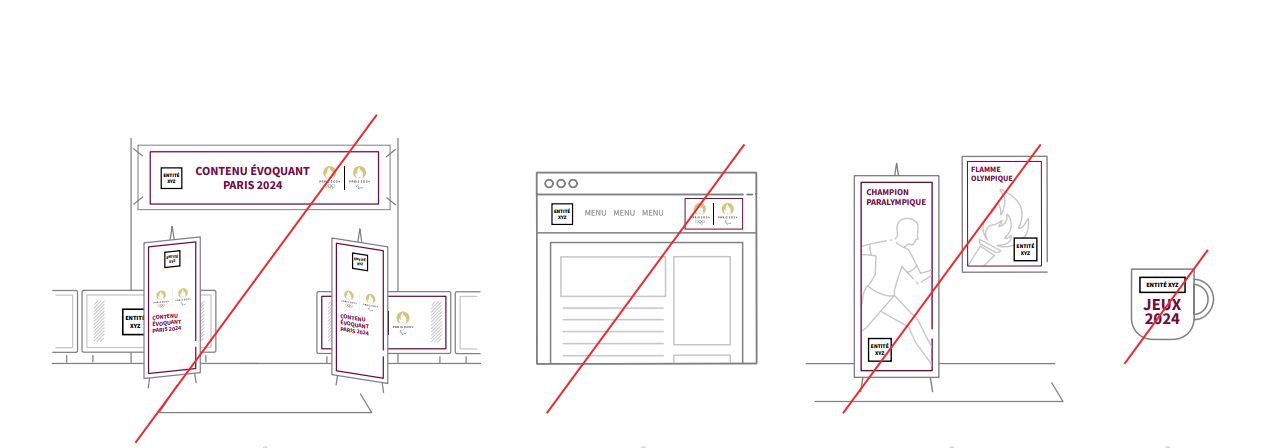
Uses considered likely to infringe Paris rights
Credit
Paris2024
Ambush marketing
The Olympic Games and the Paralympic Games are respectively the exclusive property of the IOC and the IPC, to whom all rights are reserved. All rights to objects created in the context or for the purposes of, or associated are with, the Paris 2024 Olympic and Paralympic Games remain the exclusive property of the IOC, IPC and Paris 2024.
The misuse, misappropriation or unauthorized use of trademarks, Olympic and Paralympic properties or any other intellectual property associated with the Games constitute acts of infringement and are prohibited by the French Sports Code and Intellectual Property Code. Such actions may also be considered ambush marketing.
The misuse, misappropriation or unauthorized use of trademarks, Olympic and Paralympic properties or any other intellectual property associated with the Games constitute acts of infringement and are prohibited by the French Sports Code and Intellectual Property Code. Such actions may also be considered ambush marketing.
Further reading
For further information, the full document produced by Paris 2024 provides advice to anyone wishing to use Paris 2024 Games properties and wish to ensure compliance to intended use.
Back in 1924…
The eighth Olympiad was hosted in Paris 100 years ago.
This year the Archives de Paris have decided to digitize documents that bear witness to the preparations for this event, and in particular those relating to trademark and design registrations.
We want to hear from you!
Was this information useful to you?
Please note: we cannot reply via this form (please do not include any personal information).
